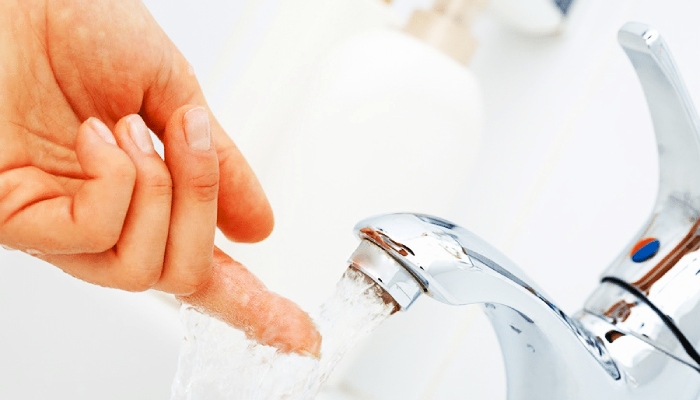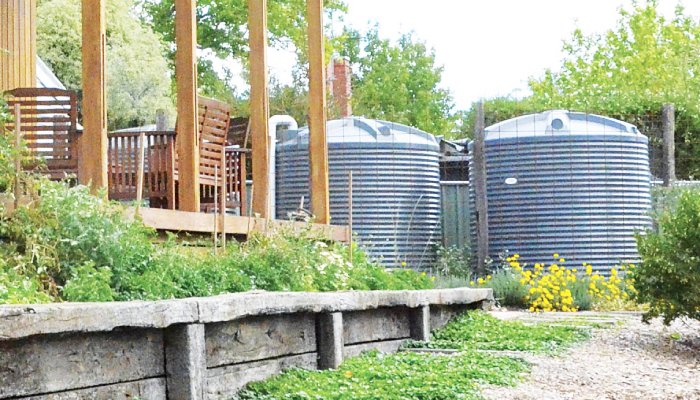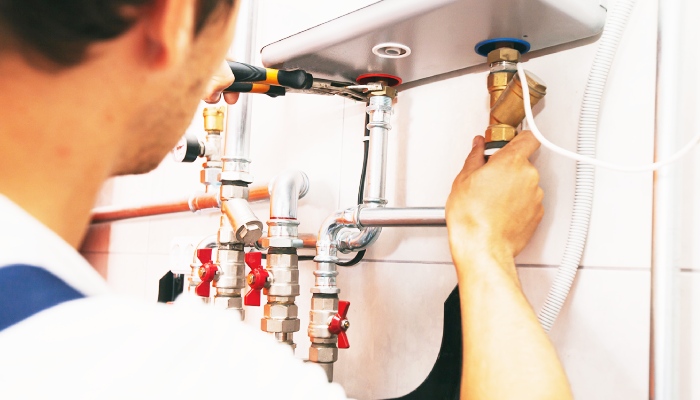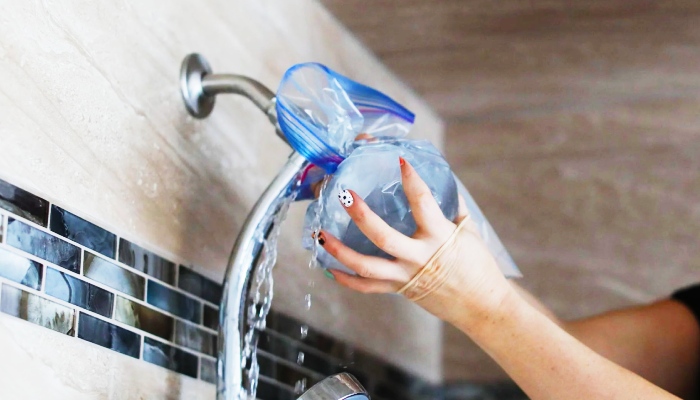
Hot water systems are indispensable fixtures in modern households, providing essential comfort and convenience for various domestic activities. From bathing to dishwashing, laundry, and space heating, these systems fulfill diverse needs that underpin daily routines. However, the reliable operation and longevity of hot water systems hinge upon meticulous maintenance practices, rather than mere reliance on their inherent functionality.
This article delves into the significance of regular maintenance for hot water systems, including tankless water heaters in Australia, elucidating its pivotal role in extending their operational lifespan, optimizing energy efficiency, and ensuring consistent performance. While these systems are designed to withstand considerable use over time, neglecting maintenance can lead to a plethora of issues, ranging from diminished efficiency and increased energy consumption to costly repairs and premature replacement.
Through an exploration of various maintenance strategies and best practices, this article aims to empower homeowners with the knowledge and tools necessary to preserve the health and functionality of their hot water systems. By understanding the intricacies of these systems and implementing proactive maintenance measures, homeowners can safeguard their investment, minimize operational costs, and contribute to sustainable living practices.
The subsequent sections will delve into the fundamentals of hot water system maintenance, encompassing professional inspections, strategies for combating common hot water service challenges such as hard water, and considerations for enhancing energy efficiency. By adhering to the principles outlined in this article, homeowners can ensure that their hot water systems remain reliable, efficient, and resilient, serving their households’ needs for years to come.

Understanding Your Hot Water System
The foundation of effective maintenance for any hot water system begins with a thorough understanding of its type and functionality. Broadly, hot water systems fall into three main categories: storage tank systems, and, hot water tank-less systems, and solar hot water systems.
Storage Tank Systems
These are the most common type of hot water systems, characterized by their method of storing and heating a reservoir of water. Typically, these systems use gas or electricity to maintain the pressure inside and the water at a set temperature until it’s needed. Key components include the tank, thermostat pressure valve, heating element (for electric models), and gas burner (for gas models).
Tankless Systems
Also known as on-demand or instant hot, water heater tank less systems, these are distinguished by their ability to provide hot water without the need for a storage tank. They heat water directly as it flows through the unit, offering energy efficiency and space-saving advantages. Tankless systems can be electric or gas-powered and require a different approach to maintenance due to their unique design.
Solar Hot Water Systems
Utilizing renewable energy, solar hot water systems incorporate solar panels to capture energy from the sun, which is then used to heat water. These systems often have a storage tank and use a backup energy source for days with insufficient sunlight. They require specific maintenance, especially concerning the solar panels and the integration with the conventional heating system.
Understanding these systems’ design and operational mechanisms is crucial for implementing the right maintenance practices. Each system has its unique requirements and challenges, necessitating tailored approaches to ensure optimal performance and longevity.
The Importance of Regular Maintenance
The pivotal role of regular maintenance in the longevity and efficiency of hot water systems is grounded in several key factors:
Preventing Breakdowns
Regular maintenance helps in early identification of potential problems, preventing them from escalating into major issues. This proactive approach significantly reduces the likelihood of system failures, ensuring continuous availability of hot water.
Energy Efficiency
A well-maintained hot water system operates more efficiently. Build up back-ups like sediment in tanks or scaling in pipes can significantly reduce efficiency, leading to higher energy consumption and costs. Regular cleaning and inspections ensure these systems function at their optimal energy efficiency.
Extending System Life
Regular maintenance directly impacts the average lifespan of of hot water systems. Systems that are routinely serviced and checked for issues tend to last much longer than neglected ones. This longevity not only saves money on replacement costs but also contributes to sustainable practices by reducing waste.
Safety
A crucial aspect of maintaining hot water systems is ensuring the safety of users. For instance, a malfunctioning gas hot water heater, can pose risks of carbon monoxide poisoning, while electrical systems have their own safety hazards. Regular maintenance checks ensure these systems are safe to use.
Economic Benefits
While regular maintenance involves some cost, it is often far less than the expense of repairing or replacing a neglected system. By extending the system’s lifespan and ensuring efficient operation, maintenance results in considerable long-term savings.
Compliance with Warranties and Regulations
Many hot water systems come with warranties that require regular maintenance. Additionally, there might be local regulations mandating routine checks and maintenance of hot water services for safety and environmental reasons.
Regular maintenance, therefore, is not just a recommendation but a necessity for the health and efficiency of hot water systems. The following sections will delve into the specifics of how this maintenance can be effectively carried out, including both professional services and do-it-yourself tips.

Scheduling Professional Inspections
A critical component of maintaining a hot water system is the regular scheduling of professional inspections. These inspections are pivotal in identifying issues that might not be apparent to the untrained eye. They play a crucial role in ensuring the long-term health and efficiency of the system.
Frequency of Inspections
The recommended frequency of professional inspections can vary depending on the type of system and its age. As a general rule, an annual inspection is advisable for most systems. However, older systems or those in areas with hard water may benefit from more frequent checks.
What Inspections Entail
Professional inspections typically involve a comprehensive check of all system components. For tank systems, this includes examining the tank for signs of corrosion or leakage, checking the anode rod, inspecting heating elements, and verifying the thermostat’s accuracy. In tankless systems, professionals might focus on cleaning and inspecting the burners, checking the water filter, and ensuring the proper flow of the heat pump water heater. For solar hot water systems, inspections would involve assessing the solar panels, the condition of the storage tank, and the efficiency of the heat transfer fluid.
Choosing a Professional
It’s essential to select a qualified and experienced professional for inspections. Look for licensed and insured technicians who have a good reputation and expertise in your specific type of hot water system.
Documentation and Follow-Up
After the inspection, ensure that you receive a detailed report of what was checked, any issues identified, and recommendations for any required maintenance or repairs. This documentation is valuable for keeping track of your system’s health and maintenance history.
Maintenance Practices for Homeowners
While professional inspections play a crucial role in the maintenance of hot water systems, homeowners can actively participate in preserving the health and efficiency of their systems through consistent maintenance practices. By being proactive and attentive to the needs of their hot water systems, homeowners can mitigate potential issues and contribute to their systems’ longevity.
Regular Monitoring: Vigilance is key to identifying early signs of trouble within your hot water system. Homeowners should routinely inspect their systems for any abnormalities, such as leaks, unusual noises, or fluctuations in water temperature. Early detection allows for timely intervention, preventing minor issues from escalating into major problems.
Scheduled Flushing: Sediment buildup is a common issue in hot water systems, particularly in areas with hard water. Over time, sediment accumulation can hinder the system or water heater’s efficiency, and lead to premature wear and tear. Homeowners with cold water pipes should schedule periodic flushing of their hot water tanks to remove sediment buildup, ensuring optimal performance.
Temperature Control: Adjusting the temperature settings of your hot water system can help optimize energy efficiency and prevent unnecessary strain on the system. Setting the temperature of hot water unit to the appropriate level for your household’s needs not only conserves energy but also minimizes the risk of scalding accidents.
Filter Replacement: Many hot water systems are equipped with filters to trap impurities and sediment from entering the system. Homeowners should regularly inspect and replace these filters as needed to maintain the system’s efficiency and water quality.
Professional Maintenance: While homeowners can perform certain maintenance tasks, it’s essential to recognize the limitations of DIY maintenance. Some tasks, such as inspecting gas connections or testing for any pressure relief valves and valve valves, are best left to qualified professionals. Homeowners should schedule regular professional maintenance checks to ensure the overall health and safety of their hot water systems.
By incorporating these simple maintenance tips and practices into their routine household chores, homeowners can play an active role in preserving the functionality and longevity of their hot water systems. Consistent attention and care not only tips to extend the life of the system but also provide peace of mind knowing that your hot water needs are reliably met.

Dealing with Hard Water
One of the prevalent challenges faced by hot water systems, particularly in areas with mineral-rich water sources, is the presence of hard water. Hard water contains high levels of dissolved minerals, primarily calcium and magnesium carbonates, which can accumulate over time and compromise the efficiency and lifespan of hot water systems. Addressing the issues associated with hard water is essential for maintaining optimal performance and prolonging the life of your hot water system replacement well.
Effects of Hard Water: The minerals present in hard water can lead to scaling, a buildup of mineral deposits, inside the hot water system. This scaling can coat heating elements, pipes, and other components, reducing heat transfer efficiency and potentially causing damage. Additionally, scaling can lead to increased energy consumption, as the system works harder to heat water through the insulating layer of mineral deposits.
Water Softeners: Installing a water softener is one of the most effective solutions for mitigating the effects of hard water on hot water systems. Water softeners work by exchanging calcium and magnesium ions in the water with sodium ions, effectively softening the water and preventing scale buildup. Regular maintenance of the water softener, including replenishing salt or potassium pellets, is necessary to ensure its continued effectiveness.
Descaling Methods: In addition to using water softeners, periodic descaling of hot water systems is recommended to remove existing scale buildup. Descaling involves the use of chemical or mechanical methods to dissolve or dislodge mineral deposits from the interior surfaces of the system. Chemical descaling agents are available commercially and should be used according to manufacturer instructions to avoid damage to the system.
Preventive Measures: In areas with particularly hard water, taking preventive measures can help minimize the impact on hot water systems. For example, installing a pre-filter to remove sediment and larger mineral particles before they enter the system can reduce scaling. Additionally, flushing the system regularly to remove accumulated sediment and minerals can help maintain efficiency.
Monitoring and Maintenance: Regular monitoring of water quality and system performance is essential for detecting signs of scaling or other issues related to hard water. If you notice reduced water flow, unusual noises, or increased energy consumption, it may indicate scaling or other problems that require attention. Prompt action, including descaling and maintenance of water softening equipment, can prevent further damage and prolong the life of your hot water system.
Energy Efficiency and System Upgrades
Energy efficiency is a key consideration in the maintenance and operation of hot water systems, as it not only reduces energy consumption and utility costs but also minimizes environmental impact. Implementing energy-efficient practices and considering system upgrades can enhance the performance and longevity of your hot water system while reducing your carbon footprint.
Insulation: Proper insulation of hot water pipes and storage tanks helps minimize heat loss and maintain water temperature, reducing the workload on the system and improving energy efficiency. Insulation materials such as foam pipe insulation and hot water tank and heater blankets are readily available and easy to install, providing a cost-effective way to improve efficiency.
Temperature Settings: Adjusting the temperature settings of your hot water system to match your household’s needs can further optimize energy efficiency. Lowering the temperature setting for hot showers down to around 120 degrees Fahrenheit not only reduces energy consumption but also helps prevent scalding and extends the life of the cold water system by reducing thermal stress.
System Upgrades: Upgrading to a more energy-efficient hot water heater system or retrofitting existing systems with energy-saving features can yield significant long-term benefits. For example, replacing an older storage tank system with a high-efficiency tankless or heat pump hot water heater system can result in substantial energy savings over time. Additionally, integrating renewable energy sources such as solar thermal or geothermal technology can further reduce reliance on conventional energy sources and lower operating costs.
Regular Maintenance: Proper maintenance is essential for preserving the energy efficiency of your hot water system over time. Regularly cleaning and inspecting gas hot water system and components, including heating elements, burners, and insulation, helps ensure optimal performance and identify potential energy-wasting issues early. Professional maintenance services can also provide valuable energy-saving recommendations and assistance with system upgrades.
By prioritizing energy efficiency and considering system upgrades, homeowners can not only reduce their energy bills but also contribute to a more sustainable future by minimizing resource consumption and environmental impact.

Preparing for Seasonal Changes
Hot water systems can be affected by seasonal variations in temperature and usage patterns. To ensure optimal performance and longevity, it is essential to prepare your hot water system for seasonal changes.
Winter Preparations: In colder climates, freezing temperatures can pose a threat to hot water systems, particularly outdoor components such as solar panels or exposed pipes. Taking precautions such as insulating pipes, draining outdoor components, and ensuring proper circulation can help prevent damage from freezing. Additionally, adjusting the temperature settings on your hot water system to accommodate colder weather can help maintain efficiency and comfort.
Summer Maintenance: Summer months often bring increased demand for hot water due to higher usage, such as outdoor activities or increased showering frequency. Inspecting and cleaning existing hot water system and components, adjusting temperature settings, and monitoring water usage can help ensure that your hot water system meets the increased demand without overworking or experiencing issues.
Year-Round Monitoring: Regardless of the season, regular monitoring and maintenance of your hot water system are essential for identifying and addressing any issues before they escalate. Keep an eye out for signs of leaks, reduced efficiency, or unusual noises, and take prompt action to address any problems. Additionally, scheduling regular professional inspections and maintenance checks can help ensure that your hot water system remains in top condition year-round.
Seasonal Adjustments: Depending on your hot water system’s type and location, you may need to make seasonal adjustments to optimize performance and efficiency. For example, adjusting the temperature settings or switching between heating modes (e.g., electric vs. solar) based on seasonal variations in sunlight or temperature can help maximize energy savings and system effectiveness.
Conclusion
In conclusion, the maintenance of hot water systems, including hot water tanks, hot water heaters, and tankless water heaters, is a vital aspect of regular maintenance tips for extending the life of your hot water system and ensuring their longevity, efficiency, and safety. By implementing a proactive approach to maintenance, including regular professional inspections, addressing challenges such as hard water and seasonal variations, and considering system upgrades, homeowners can prolong the life of their hot water systems and reduce the risk of costly repairs or replacements.
Moreover, prioritizing energy efficiency can not only lower utility bills but also contribute to environmental sustainability by reducing energy consumption and greenhouse gas emissions. Ultimately, investing time and resources in the maintenance of your hot water system is an investment in the comfort, convenience, and sustainability of your home.
By following the maintenance tips and strategies outlined in this article, homeowners can enjoy a reliable hot water supply, lower energy costs, and peace of mind knowing that their hot water system is operating at its best, sparing them from the inconvenience of cold showers and ensuring the uninterrupted flow of comfort throughout their homes.
